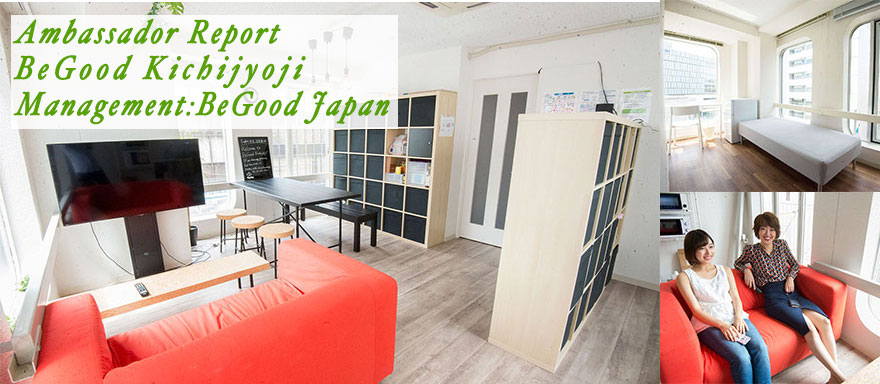Residing in a share house is a popular option for many individuals, pa…
페이지 정보

본문
In Japan, mutual support is a common practice, particularly in young professionals. These houses are often furnished with updated amenities and offer a convenient residential area for occupants. The society of respect is strong in Japanese customs, and this is reflected in the way occupants interact with each other in a share house. Dwellers are required to be respectful of their roommates property and belongings, and any conflicts or problems are typically resolved through amicable and diplomatic means.
 In contrast, share house living in Aussie culture is often more laid-back. Australian share houses are often equipped with outdoor spaces, such as barsbecue areas, where dwellers can network and enjoy the pleasant weather. The society of egalitarianism is powerful in Australia, and residents are often welcome and hospitality to guests. However, this can sometimes lead to a absence of individual and an requirement that occupants will engage in loud and collective gatherings.
In contrast, share house living in Aussie culture is often more laid-back. Australian share houses are often equipped with outdoor spaces, such as barsbecue areas, where dwellers can network and enjoy the pleasant weather. The society of egalitarianism is powerful in Australia, and residents are often welcome and hospitality to guests. However, this can sometimes lead to a absence of individual and an requirement that occupants will engage in loud and collective gatherings.
In Western cultures, share house living is popular among students. In nations such as Germany and the Low Countries, share houses are often furnished with modern facilities such as private bathrooms and fully furnished kitchens. The society of individuality is enduring in these countries, and occupants are often urged to admire each other's personal space. Any disputes or problems are typically resolved through open communication.
In the United States, share house living is often costlier than in other nations, particularly in metropolises such as New York and San Francisco. The culture of luxury is enduring in these districts, and share houses are often fashioned to reflect this. Residents are often required to pay for a significant amount of money for accommodation and utilities, and any issues or problems are typically resolved through mediation.
In India, share house living is a common practice, particularly by students. These houses are often furnished with basic services such as common bathrooms and kitchens. The culture of solidarity is strong in India, and dwellers are often urged to help each other and cooperate as a group. Any issues or problems are typically settled through conciliation and シェアハウス 安い consent.
In conclusion, the cultural differences in share house living worldwide the world are varied. While share houses in Japan are defined by hospitability, those in ozzy culture are characterized by a casual atmosphere. In Western cultures, share houses are often designed with updated services and a emphasis on separateness, while in the United States, they are often characterized by prestige. In Indian culture, share houses are often furnished with a concern for solidarity and harmony. These cultural differences underline the unique nature of share house living and the significance of knowing and appreciating different cultural norms.
 In contrast, share house living in Aussie culture is often more laid-back. Australian share houses are often equipped with outdoor spaces, such as barsbecue areas, where dwellers can network and enjoy the pleasant weather. The society of egalitarianism is powerful in Australia, and residents are often welcome and hospitality to guests. However, this can sometimes lead to a absence of individual and an requirement that occupants will engage in loud and collective gatherings.
In contrast, share house living in Aussie culture is often more laid-back. Australian share houses are often equipped with outdoor spaces, such as barsbecue areas, where dwellers can network and enjoy the pleasant weather. The society of egalitarianism is powerful in Australia, and residents are often welcome and hospitality to guests. However, this can sometimes lead to a absence of individual and an requirement that occupants will engage in loud and collective gatherings.In Western cultures, share house living is popular among students. In nations such as Germany and the Low Countries, share houses are often furnished with modern facilities such as private bathrooms and fully furnished kitchens. The society of individuality is enduring in these countries, and occupants are often urged to admire each other's personal space. Any disputes or problems are typically resolved through open communication.
In the United States, share house living is often costlier than in other nations, particularly in metropolises such as New York and San Francisco. The culture of luxury is enduring in these districts, and share houses are often fashioned to reflect this. Residents are often required to pay for a significant amount of money for accommodation and utilities, and any issues or problems are typically resolved through mediation.
In India, share house living is a common practice, particularly by students. These houses are often furnished with basic services such as common bathrooms and kitchens. The culture of solidarity is strong in India, and dwellers are often urged to help each other and cooperate as a group. Any issues or problems are typically settled through conciliation and シェアハウス 安い consent.
In conclusion, the cultural differences in share house living worldwide the world are varied. While share houses in Japan are defined by hospitability, those in ozzy culture are characterized by a casual atmosphere. In Western cultures, share houses are often designed with updated services and a emphasis on separateness, while in the United States, they are often characterized by prestige. In Indian culture, share houses are often furnished with a concern for solidarity and harmony. These cultural differences underline the unique nature of share house living and the significance of knowing and appreciating different cultural norms.
- 이전글Does This 25.03.14
- 다음글Betting Websites & On-line Sportsbooks Evaluations 2025 25.03.14
댓글목록
등록된 댓글이 없습니다.



